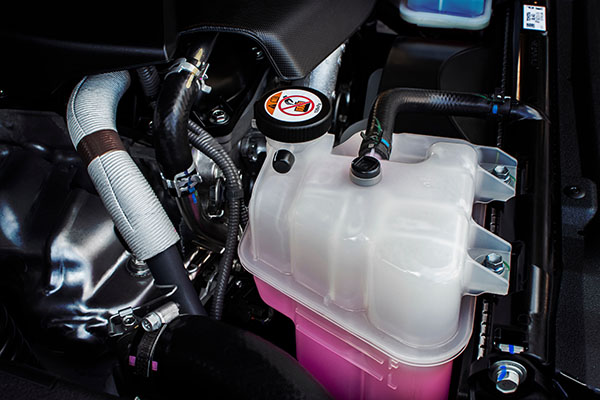
When you think about your car, what's the first thing that comes to mind? Is it the sleek design, the powerful engine, or the freedom it gives you on the open road? Well, it's time to shift your focus for a moment and dive into the unsung hero of your vehicle's performance - coolant.
Coolant, often overlooked, plays a pivotal role in keeping your car's engine running smoothly. Today, we'll delve deep into the world of coolant, uncovering its various types, discussing when and why you need to change it, and much more.
Types of Coolant
Coolant isn't just a one-size-fits-all solution; it comes in different types, each with its unique characteristics. The two most common types are:
Ethylene Glycol-Based Coolant
This is the traditional green coolant you might be familiar with. It provides excellent freeze protection and effective heat transfer, making it ideal for most cars.
Propylene Glycol-Based Coolant
If you prefer a more eco-friendly option, propylene glycol-based coolant is the way to go. It's less toxic and biodegradable, making it a solid choice for environmentally conscious drivers.
When Should You Change Your Coolant?
Changing your coolant might not be on your regular to-do list, but it's crucial for your car's health. Here are some signs and guidelines for when to consider a coolant change:
- Mileage: Typically, it's recommended to change coolant every 30,000 to 60,000 miles. Refer to your car's manual for specific intervals.
- Visible Rust or Sediments: If you notice rust particles or sediments in your coolant, it's a red flag. These contaminants can clog your cooling system, leading to overheating.
- Overheating: If your engine frequently runs hot despite other maintenance efforts, it's a sign that your coolant might be losing its effectiveness.
- Color Change: Coolant should maintain its original color. If it changes or becomes cloudy, it's time for a change.
The Cooling System Flush
When you decide it's time to change your coolant, consider a cooling system flush. This process involves draining the old coolant, flushing the system with water to remove debris, and then refilling it with fresh coolant. It ensures that your engine is getting the best protection possible.
The Importance of Coolant
Coolant isn't just there to prevent freezing or overheating; it also serves other crucial functions:
Coolant contains additives that protect your engine's metal components from corrosion.
It lubricates the water pump and seals, extending their lifespan.
Coolant raises the boiling point of water, preventing your engine from overheating in hot weather.
So, the next time you pop the hood of your car, spare a thought for that colorful liquid in the radiator. Coolant might be a hidden hero, but it plays a vital role in the balance of your car. From its various types to the importance of regular changes, it keeps your engine running smoothly and efficiently.
Remember, maintaining is key! Quality Tune-Up Auto Care is here to help out and give your car the care it deserves - just book an appointment and experience the difference for yourself.